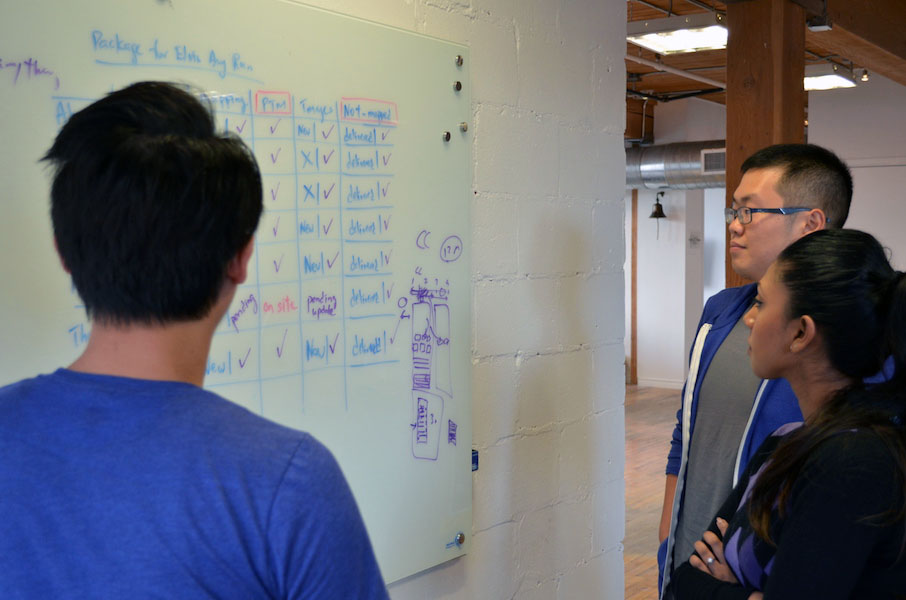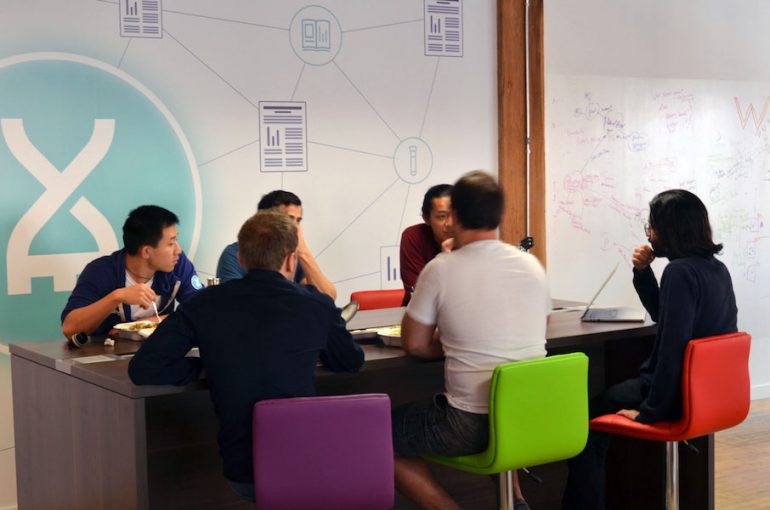As part of a regular series powered by Microsoft, BetaKit interviews prominent Canadian CTOs speaking earnestly on the biggest challenges they face in their role, as well as future technology predictions in their space.
David Chen is a PhD turned tech founder. As founder and CTO of BenchSci, Chen’s work is focused on the biomedical and life sciences field, using machine learning to help doctors and medical researchers solve complex medical challenges.
Getting your hands dirty
“BenchSci is still early, but there’s already some differences showing from when we were just starting,” Chen said.
He explained that there’s always more to carry in the early days, with “CTO” being a glorified title because the reality is that you are the product expert, visionary, and junior developer all in one.
“It’s possible that the entire technology you based your ideas on could be obsolete in a few years.”
– David Chen
“On top of that, your responsibilities tend to blur with other co-founders, due to both a small team size and the process of figuring out your product and business,” Chen said.
The pace of a startup is also much faster than a more established company, as Chen learned when BenchSci grew from two to 20 people.
“There’s more room to think strategically about vision and product direction, but I now split my time between people management and technical issues,” he said. “That being said, I’m a more technical CTO because our product has technical elements that are hard to hire for.”
When it comes to what would-be startup CTOs should focus on, Chen is pretty clear.
“Don’t be afraid to get your hands dirty and be prepared for being constantly ready to work,” he said.
“A lot of times at bigger places you don’t have to get into the nitty-gritty, but in a startup, you will have to do a lot of things yourself,” Chen continued. “Given the wider range of tasks required of you, you’ll also have to realize there’s no such thing as vacation. Even when you are away, you’ll need to be ready to work or help out if the need arises.”
Building a process for success
Startups are always on, and problems can arise at any time. Even at a size larger than BenchSci’s ‘scrappy’ days, the buck still stops with Chen, meaning there are tradeoffs.
“I’m really lucky that I am married to a supportive spouse, which helps a lot since many household duties are taken care of,” he said. “This, thankfully, means there are fewer things to worry about at home in that sense.”
However, Chen cautions all entrepreneurs – married or single – to not be dependent on anyone else for making your life easier.
“As you grow in your company, you have to focus on designing processes and building a strong team so that minor issues are caught early and don’t become catastrophic.”
Catching one of these issues makes you the lucky one, as Chen learned early on with BenchSci. The biggest issue for him are the “unknown unknowns,” the problems that come out of left field when you’re staring at home plate.

Chen explained that the real culprit in today’s startup ecosystem is the fast pace of technological development.
“It’s possible that the entire technology you based your ideas on could be obsolete in a few years,” he said. “You need to pay attention to that so you are not lagging behind.”
Staying ahead rather than lagging can mean as much time spent on personal development as putting out fires. It doesn’t come easy and it’s not the same for everyone, but really depends on your own background and learning style.
“Personally, I spend my time reading research papers on new technologies so I can understand the theories behind the innovations,” Chen said. “I feel like knowing the theory is more important than learning all the specifics, since knowing the theory helps you stay ahead of the big idea.”
Becoming multidisciplinary
This pace of development in technology has also demanded a different kind of CTO, says Chen.
The biggest issue for CTOs: the “unknown unknowns,” problems that come out of left field when you’re staring at home plate.
“You have to become more multidisciplinary,” he explained. “You have to not only know engineering best practices for scaling, but also much broader concepts like machine learning and how it may affect your field. A CTO then has to be able to communicate these concepts in a way that ties to organizational objectives on top of describing concepts in a way that gets a stellar product built.”
Given the huge number of technological and market breakthroughs — from the Chinese market opening, to AI, to VR, and AR — Chen says a CTO would be foolish to ignore any of them.
But since you can’t know everything about every topic, he says CTOs should be paying attention to broader geophysical and economic shifts. Fundamental changes to how we do business will come in broad arcs, from hiring to sales and everything in between.
What’s next and lessons learned
Keeping an eye on the forest amongst the trees, Chen is also paying attention to how these breakthroughs will affect his industry specifically.
“We’re seeing convergence already of how machine learning will help people more effectively conduct experiments, creating the opportunity to build robots to operationalize these experiments,” he said.
“In my opinion, this is a good thing because it allows researchers to focus on the more creative or complex aspects of a problem in order to design new experiments, leveraging technology for the manual work involved.”

